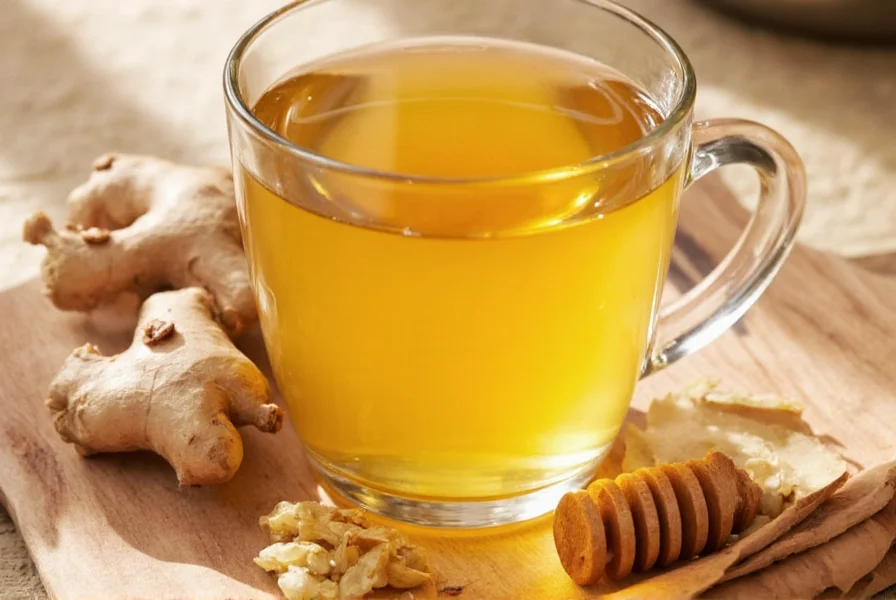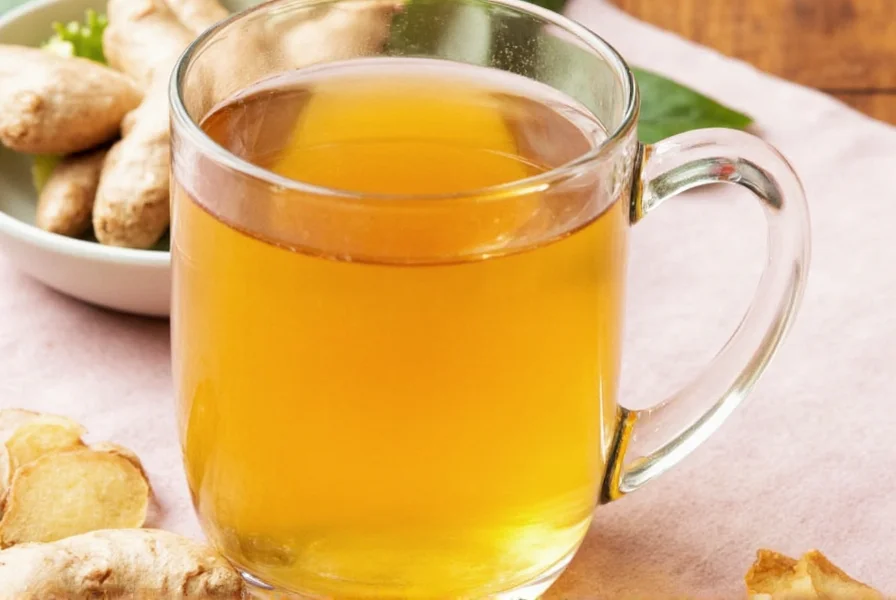Ginger tea with honey offers scientifically supported benefits for immune support, sore throat relief, and digestion. This natural combination leverages ginger's anti-inflammatory compounds and honey's antimicrobial properties to create an effective remedy for cold symptoms and general wellness. Research shows this pairing works synergistically, with honey enhancing the bioavailability of ginger's active components while providing its own therapeutic effects.
For centuries, cultures worldwide have turned to ginger tea with honey as a go-to remedy when feeling under the weather. This simple preparation combines two powerful natural ingredients that work together to address multiple health concerns. Unlike many commercial remedies, this natural combination provides relief without artificial additives or potential side effects associated with some over-the-counter medications.
The Science Behind Ginger Tea with Honey Benefits
Ginger contains bioactive compounds called gingerols that give it potent anti-inflammatory and antioxidant properties. When combined with raw honey—which contains hydrogen peroxide, flavonoids, and other beneficial compounds—the mixture creates a powerful natural remedy with multiple mechanisms of action.
Studies published in the Journal of Medicinal Food confirm that ginger demonstrates significant anti-nausea effects and can help reduce inflammation markers in the body. Meanwhile, research in the Cochrane Database of Systematic Reviews indicates honey may be more effective than placebo for cough suppression in upper respiratory infections.
| Active Component | Primary Benefit | Scientific Support Level |
|---|---|---|
| Gingerols (ginger) | Anti-inflammatory, nausea reduction | Strong clinical evidence |
| Hydrogen Peroxide (honey) | Antimicrobial action | Well-documented |
| Polyphenols (both) | Antioxidant protection | Substantial research |
| Mucilage (ginger) | Soothes irritated throat tissue | Moderate evidence |
How Ginger Tea with Honey Works for Common Ailments
When you're searching for natural remedies for sore throat with ginger and honey, understanding the specific mechanisms can help you use this remedy more effectively. The combination works through several physiological pathways:
For sore throats: Honey's viscous nature coats and soothes irritated throat tissue while its antimicrobial properties help combat bacterial causes of soreness. Ginger's anti-inflammatory compounds reduce swelling in the throat's mucous membranes.
For coughs: Research shows honey may suppress cough frequency more effectively than some common cough medicines. The warm liquid helps loosen mucus while gingerols may reduce airway inflammation that triggers coughing.
For digestion: Ginger stimulates gastric motility and digestive enzyme production. This explains why many cultures consume ginger tea with honey after meals to prevent bloating and discomfort.
Optimal Preparation Method for Maximum Benefits
Knowing how to make ginger tea with honey for cold symptoms properly matters significantly for effectiveness. Many people undermine the potential benefits through improper preparation:
Ingredients:
- 1-2 inches fresh ginger root (peeled and thinly sliced or grated)
- 8-12 ounces filtered water
- 1-2 teaspoons raw, unprocessed honey
- Optional: slice of lemon for additional vitamin C
Preparation steps:
- Bring water to just below boiling (195-200°F) - boiling water can degrade some beneficial compounds
- Add prepared ginger and simmer for 10-15 minutes (longer for stronger tea)
- Remove from heat and let cool to below 140°F before adding honey (higher temperatures destroy honey's beneficial enzymes)
- Stir in honey thoroughly and optionally add lemon

When to Drink Ginger Tea with Honey for Best Results
Understanding the best time to drink ginger tea with honey can maximize its therapeutic effects. Timing matters significantly for different health goals:
For cold and flu symptoms: Consume 2-3 times daily while symptoms persist, particularly before bedtime as the soothing properties can improve sleep quality during illness.
For digestive support: Drink 20-30 minutes before meals to stimulate digestive enzymes or after meals to alleviate bloating and discomfort.
For general immunity: One cup daily, preferably in the morning, provides consistent immune support without potential sleep disruption from ginger's mild stimulating properties.
Safety Considerations and Potential Side Effects
While ginger tea with honey side effects are generally minimal, certain populations should exercise caution:
Who should limit consumption:
- Individuals taking blood thinners (ginger has mild anticoagulant properties)
- People with gallstone disease (ginger may increase bile production)
- Those with honey allergies (rare but possible)
- Infants under 1 year (risk of botulism from honey)
The recommended daily limit is 3-4 cups of properly prepared ginger tea with honey. Excessive consumption may cause heartburn, mouth irritation, or digestive upset in sensitive individuals. Always consult your healthcare provider before using this remedy if you have chronic health conditions or take prescription medications.
How It Compares to Other Remedies
When evaluating does ginger tea with honey help with cough compared to commercial options, research suggests several advantages:
- Natural cough suppression: Honey has demonstrated comparable or superior effectiveness to dextromethorphan for nighttime cough in children over 1 year
- No drowsiness: Unlike many over-the-counter cough medicines, this natural remedy doesn't cause sleepiness
- Dual-action: Addresses both the symptom (cough) and underlying inflammation
- Cost-effective: Significantly cheaper than most commercial remedies when prepared at home
However, for severe or persistent symptoms lasting more than 10 days, consult a healthcare professional as these may indicate conditions requiring medical treatment.
Conclusion
Ginger tea with honey represents a time-tested natural remedy with growing scientific validation for its health benefits. When prepared correctly and consumed at appropriate times, this simple combination offers meaningful relief for common ailments without the potential side effects of many pharmaceutical options. While not a cure-all, it serves as an effective component of a comprehensive approach to maintaining respiratory and digestive health through natural means.











 浙公网安备
33010002000092号
浙公网安备
33010002000092号 浙B2-20120091-4
浙B2-20120091-4